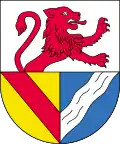Todtnau
Todtnau | |
|---|---|
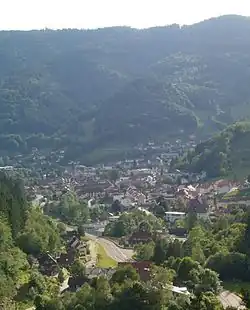 2005 panoramic view | |
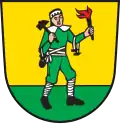 Coat of arms | |
Location of Todtnau in Lörrach District 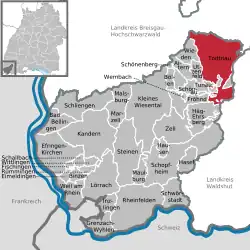 | |
 Todtnau 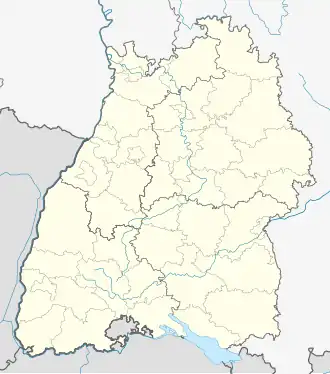 Todtnau | |
| Coordinates: 47°50′N 07°57′E / 47.833°N 7.950°E | |
| Country | Germany |
| State | Baden-Württemberg |
| Admin. region | Freiburg |
| District | Lörrach |
| Government | |
| • Mayor (2023–31) | Oliver Fiedel[1] |
| Area | |
• Total | 69.75 km2 (26.93 sq mi) |
| Elevation | 659 m (2,162 ft) |
| Population (2023-12-31)[2] | |
• Total | 5,020 |
| • Density | 72/km2 (190/sq mi) |
| Time zone | UTC+01:00 (CET) |
| • Summer (DST) | UTC+02:00 (CEST) |
| Postal codes | 79674 |
| Dialling codes | 07671 |
| Vehicle registration | LÖ |
| Website | Official website |
Todtnau (German pronunciation: [ˈtɔtnaʊ] ⓘ) is a town in the district of Lörrach in Baden-Württemberg, Germany. As of 2009 its population was of 4,932.
Geography
It is situated in the Black Forest, on the river Wiese, 20 km southeast of Freiburg.
The municipality counts 8 civil parishes (Ortsteil):
 Aftersteg
Aftersteg Brandenberg
Brandenberg Geschwend
Geschwend Herrenschwand
Herrenschwand Muggenbrunn
Muggenbrunn Präg
Präg Schlechtnau
Schlechtnau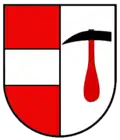 Todtnauberg
Todtnauberg
Personalities
- Karl Nessler, inventor of the permanent wave was born here.
- Martin Heidegger had a chalet in Todtnauberg
Photogallery
-
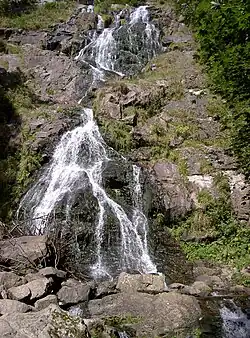 Todtnau waterfall
Todtnau waterfall -
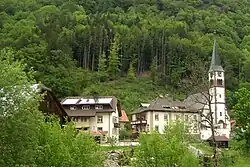 The church of Geschwend
The church of Geschwend -
 Panoramic view of Todtnau
Panoramic view of Todtnau
-
 Todtnau, church: die Sankt Johannes der Täuferkirche
Todtnau, church: die Sankt Johannes der Täuferkirche -
 Schlechtnau, chapel in the street
Schlechtnau, chapel in the street -
 Muggenbrunn, church (die Sankt Cornelius Kirche) in the street
Muggenbrunn, church (die Sankt Cornelius Kirche) in the street -
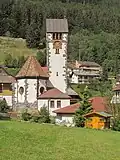 Aftersteg, church: die Sankt Anna Kirche
Aftersteg, church: die Sankt Anna Kirche
References
- ^ Bürgermeisterwahl Todtnau 2023, Staatsanzeiger. Retrieved 13 June 2024.
- ^ "Bevölkerung nach Nationalität und Geschlecht am 31. Dezember 2023 (Fortschreibung auf Basis des Zensus 2022)" [Population by nationality and sex as of December 31, 2023 (updated based on the 2022 census)] (CSV) (in German). Statistisches Landesamt Baden-Württemberg.
External links
![]() Media related to Todtnau at Wikimedia Commons
Media related to Todtnau at Wikimedia Commons
- (in German) www.todtnau.de Todtnau official website
- (in German) Information about and images
